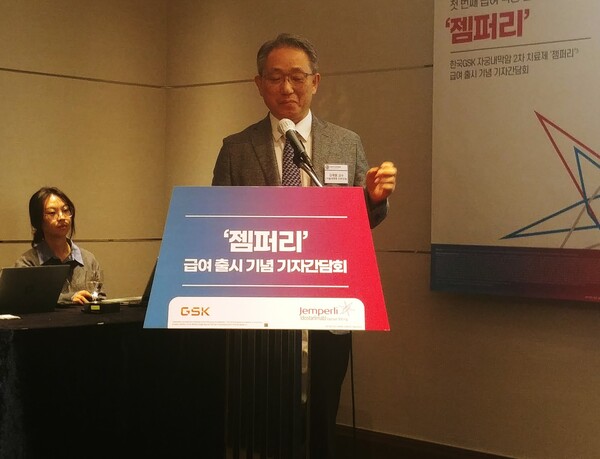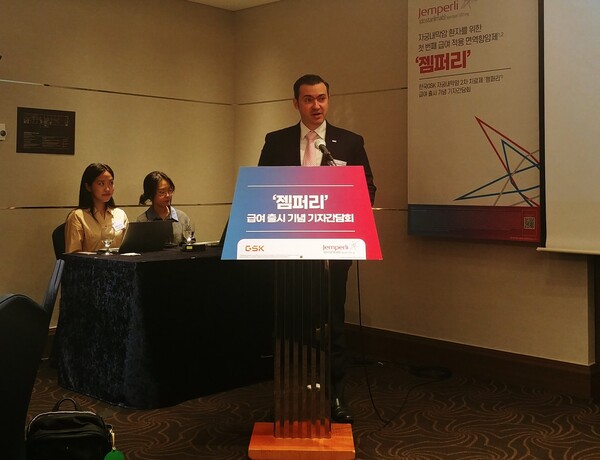GSK's immunotherapy Jemperli (dostarlimab) is set to play a key role in the second-line treatment of patients with recurrent or advanced endometrial cancer who have run out of treatment options, a local expert said.

"Until now, it has been difficult to find an alternative to chemotherapy for the treatment of endometrial cancer," said Kim Jae-weon, Professor of Obstetrics and Gynecology at Seoul National University Hospital.
"With the availability of Jemperli, we can expect to see improved treatment outcomes and a better quality of life for more patients, as the policy environment for effective treatment options is now in place," Kim said, explaining the role of Jemperli at a press conference held by GSK Korea in Seoul on Thursday.
Following approval from the Ministry of Health and Welfare, Jemperli became eligible for being covered by health insurance on Dec. 1.
Jemperli is a monoclonal antibody, targeting PD-1, which activates antitumor immunity by binding to the PD-1 receptor on the surface of T cells and interfering with the binding of Programmed Death Ligand 1 (PD-L1) or Programmed Death Ligand 2 (PD-L2) on cancer cells.
It is indicated for adult patients with recurrent or advanced dMMR/MSI-H endometrial cancer who are on prior platinum-based systemic chemotherapy or who have shown progression after treatment.
Kim also discussed the unmet need for endometrial cancer treatment in Korea. The number of patients treated for endometrial cancer in Korea increased by 34 percent over four years, from 17,421 in 2017 to 23,262 in 2021. While most cases are diagnosed at an early stage and are curable, one in four patients develops recurrent or advanced disease.
The median survival time is less than a year for advanced or recurrent patients who have failed first-line treatment.
"Second-line treatment options for patients who relapse after chemotherapy are minimal. The current standard of care is paclitaxel plus carboplatin, but the continuation of chemotherapy is associated with poor outcomes and decreased patient quality of life," Kim said.
For dMMR/MSI-H carcinoma, the response to PD-1 inhibitors is effective, he said.
Bae Min-ji, Oncology Medical Lead at GSK Korea, presented the results of the pivotal clinical study of Jemperli.
According to Bae, the Garnet study of 143 patients with dMMR/MSI-H endometrial cancer identified an objective response rate of 45.5 percent over a median follow-up of 27.6 months. Some 16 percent of patients achieved a complete response (CR) and 29.4 percent achieved a partial response (PR), and among those who responded to treatment, the proportion with a sustained response at 12 and 24 months was 93.2 percent and 83.7 percent, respectively.
Common adverse events included fatigue, diarrhea, and nausea, but only 3.9 percent of patients discontinued treatment due to adverse events.
A GSK official said that a patient receiving Jemperli under health insurance coverage can pay only 5 percent of the total cost. As Jemperli is licensed as a second-line treatment, but the headquarters of the company is also considering expanding the indication.

"Jemperli was approved in Korea a year ago, and we know that it usually takes a long time for anti-cancer drugs to reach reimbursement, but Jemperli has been able to reach reimbursement quickly," said Maurizio Borgatta, General Manager of GSK Korea. "The reimbursement of Jemperli is an important milestone for endometrial cancer patients in Korea, who have been underserved."

